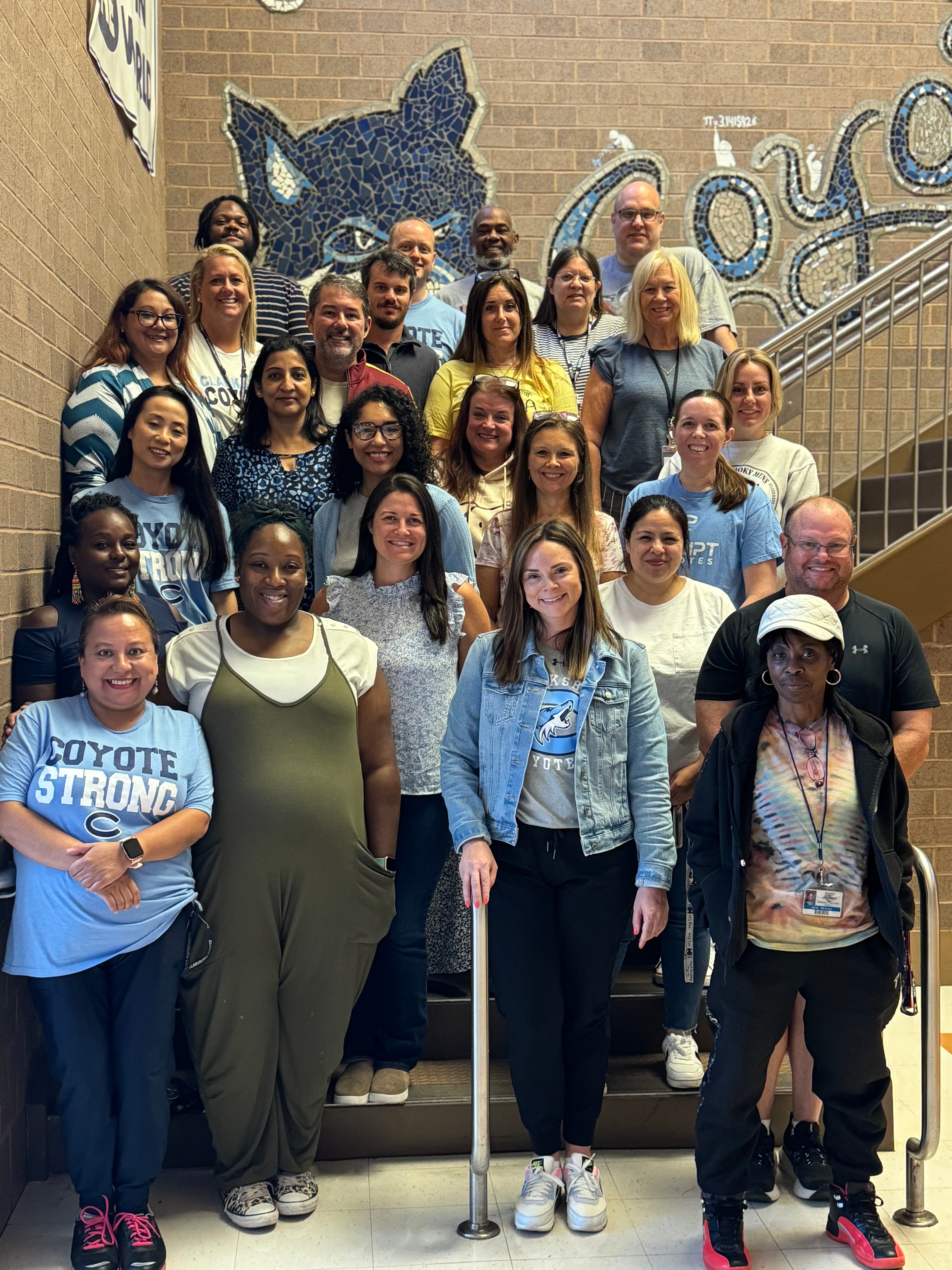|
LAD Resource Teacher: |
|
|
SESES Program Specialist: Beth Walsh, Beth_A_Walsh@mcpsmd.org |

MCPS Parent Guide to Special Education
Programs at Clarksburg High School
The Special Education department at Clarksburg High School provides two different programs to meet the needs of students with learning disabilities, intellectual disabilities, and other handicaps: Learning and Academic Disabilities (LAD) and Social Emotional Special Education Services (SESES).
For information about these programs and more, please visit the MCPS Special Education Services website.
Vocabulary
504 Plan:
An individualized plan developed for a student with a disability that specifies what accommodations they will get in school to "level the playing field" so that they may derive as much benefit from their public educational program as their nondisabled peers. The plan follows from the requirements of Section 504 of the Rehabilitation Act of 1973, and also applies to extracurricular activities and non-student situations such as employment. Section 504 applies to all public entities receiving federal monies or federal financial assistance.
Case Manager:
Case Managers at Clarksburg are special education teachers who are assigned a number of special education students for which they provide the following services:
- Co-teach in the general Inform teachers of accommodations and modifications in the IEP
- Monitor student progress through online grading
- Record quarterly progress toward IEP goals, attached to the report card
- Attend annual review meetings
- Work with related service personnel to develop appropriate IEP goals for the following year
- Collaborate with the Resource Teacher
- Work with school counselors to set appropriate class schedules
- Coordinate testing by psychologists, speech pathologists, occupational and physical therapists, etc.
- Maintain paperwork mandated by federal, state and county law, including medical assistance forms
- Maintain frequent contact with parents to discuss progress, problems, etc.
Educational Management Team (EMT):
The Educational Management Team (EMT) is a group of qualified individuals, including a student’s parents, that meets to discuss concerns and provide information regarding individual student academic needs. A teacher or parent may request that a student be evaluated by the EMT. Both types of referrals must be in writing. Parents with concerns should discuss them with their child’s teacher. If you desire a meeting with the EMT, please write your request, date and sign it. The EMT is a facilitative group process. Under IDEA, the Individuals with Disabilities Education Act, there is a timeline for the referral process. You are entitled to an EMT meeting within 30 days of your request. As the one who knows your child best, you are also strongly encouraged to attend any EMT meetings that either you or your child’s teacher request. Copies of notes from the meetings will be provided.
Extended School Year (ESY):
MCPS provides extended school year (ESY) services to eligible students receiving special education services. These services are part of a free, appropriate public education and usually are provided in the summer. More information.
Individual Education Plan (IEP):
Each public school child who receives special education and related services must have an Individualized Education Program (IEP). Each IEP must be designed for that student and must be a truly individualized document. The IEP creates an opportunity for teachers, parents, school administrators, related services personnel, and students (when appropriate) to work together to improve educational results for children with disabilities. The IEP is the cornerstone of a quality education for each child with a disability. For more information, click here.
Least Restrictive Environment (LRE):
The LRE is the educational setting where a student with a disability can receive a FAPE (Free and Appropriate Education) designed to meet the student's unique needs, while being educated with peers without disabilities in the general educational environment, to the maximum extent appropriate. The LRE mandate of the IDEA (Individuals with Disabilities Education Act) requires students with disabilities to receive their education in general education settings to the maximum extent appropriate. If such a setting is not appropriate, the student is to receive his or her education in a setting with the least amount of segregation from the student's nondisabled peers, as possible.
Each public agency shall ensure that, to the maximum extent appropriate, students with disabilities, including students in public or private institutions or other care facilities, are educated with students who are not disabled. Special classes, separate schooling, or other removal of students with disabilities from general educational settings occur only if the nature or severity of the disability is such that education in general education settings, with the use of supplementary aids and services, cannot be achieved satisfactorily.
In short, the LRE relates to the settings WHERE a student with a disability receives special education services, and how much TIME is spent in those settings, NOT WHAT SERVICES a student is to receive. The determinations of whether placement is more or less restrictive is based on how often a student is able to receive access to, and instruction in the general curriculum and have meaningful interaction with his or her nondisabled peers. Thus, the more a student with a disability receives his or her specialized instruction in general education settings with nondisabled peers, the less restrictive the placement. Conversely, the more time a student with a disability is segregated from his or her nondisabled peers in general education settings, the more restrictive the placement.
The placement where the student receives services is to be as close as possible to the student's home. Unless the student's IEP requires another arrangement, the student is to be educated in the school the student would attend if not disabled. A student with a disability is not to be removed from age-appropriate general education classes solely because modifications are needed in the general curriculum. A student may receive instruction and participate in many settings throughout the day.
RTSE: Resource Teacher, Special Education (Department Head)
Transition Support Teacher (TST):
The transition support teacher participates in assessment, instruction, and consultation related to developing and coordinating transition activities for students who receive special education services. To ensure a successful transition of students from school to adult living the TST collaborates with others to develop and implement an effective instructional program, strengthen productive partnerships, and make linkages in the community.

